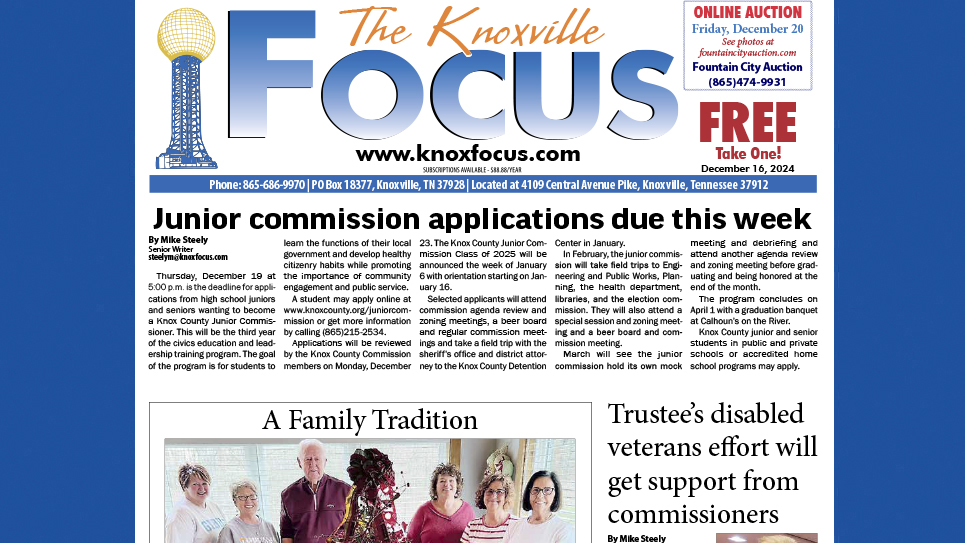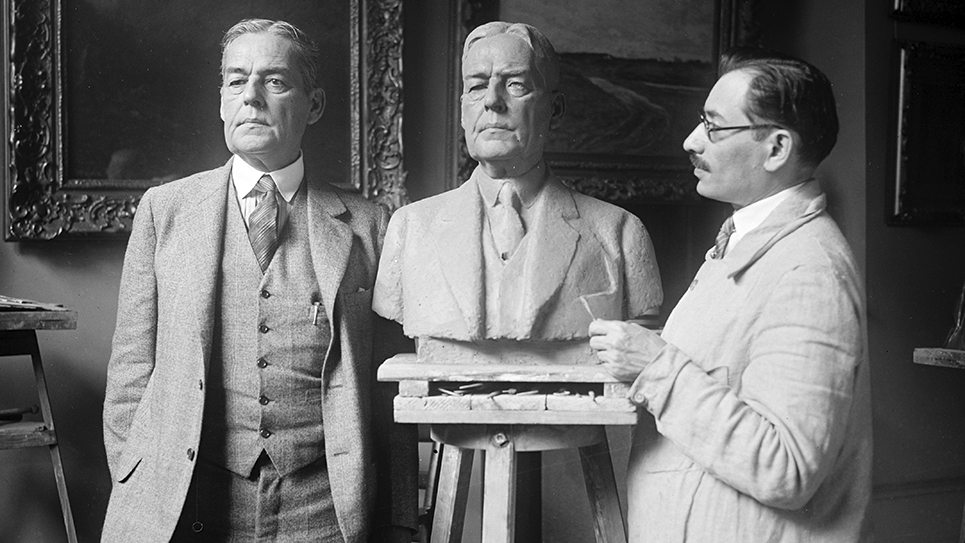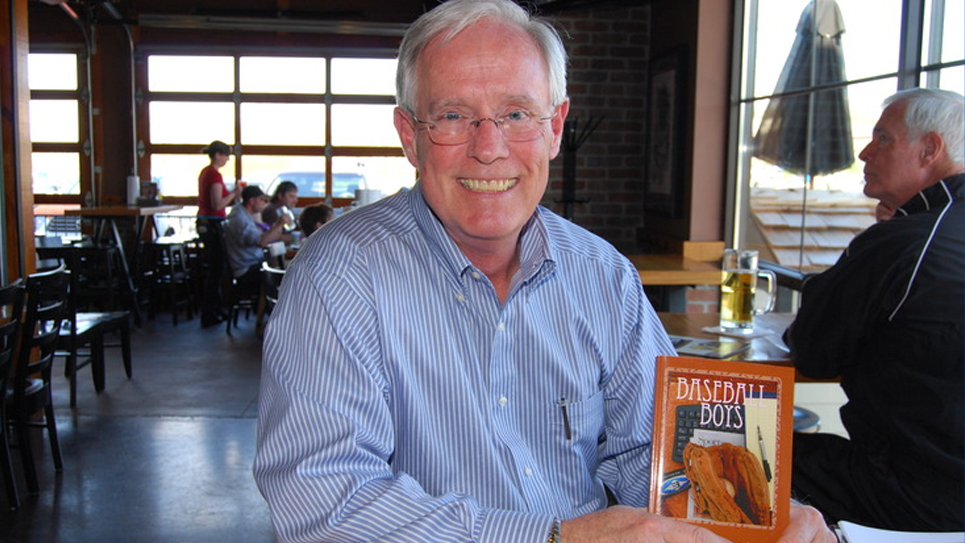Governor visiting 15 communities to hear about local opportunities and challenges
KNOXVILLE – Tennessee Gov. Bill Haslam and Tennessee Department of Transportation (TDOT) Commissioner John Schroer sat down with local and state officials in Knoxville today to discuss the region’s transportation and infrastructure needs.
In a morning meeting at the Knoxville Chamber, Haslam and Schroer discussed the functionality and capacity of Tennessee’s state roads and highways, safety issues around roads and bridges, and the impact infrastructure has on economic development efforts in urban and rural communities.
Tennessee’s transportation system includes 95,000 miles of roads, 1,100 miles of interstates, 19,000 bridges, 28 transit systems in 95 counties, 79 general aviation airports, 949 miles of waterways and more than 3,000 miles of railroads.
“The quality of Tennessee’s transportation and infrastructure system always ranks at or near the top when compared to the rest of the country,” Haslam said. “We have no transportation debt, and we do a great job maintaining our roads, but we know we have challenges on the horizon. We know that we can’t depend on the federal government to be the funding partner that it once was. We also know that as our infrastructure ages, maintenance becomes more important and more expensive. And we know that maintaining our roads is only part of the equation. Right now we have a multi-billion dollar backlog of highway projects across this state that address key access, safety and economic development issues, and that’s only going to grow.”
A 2015 Tennessee Comptroller’s report on transportation funding states that revenues are not expected to be sufficient to maintain current infrastructure.
Cars are more fuel-efficient, construction and labor costs have risen, and Congress hasn’t passed a long-term transportation funding bill in a decade. Tennessee’s population is expected to grow by 2 million by 2040, which puts a greater demand on the state’s infrastructure.
“TDOT is responsible for taking care of the assets we already have, for implementing current projects in the most cost-effective way, and for planning for the state’s infrastructure needs of the future,” Schroer said. “We look to Tennessee communities to help prioritize projects to make sure we’re addressing evolving traffic patterns, population growth, safety issues, and the many other things that impact our infrastructure, and these conversations are invaluable to the process.”
Since 2010 TDOT has invested $101 million state dollars on first and last mile road projects serving industrial expansion and recruitment helping to create nearly 29,000 jobs for 108 companies in Tennessee.
Funded primarily by state and federal gas taxes, TDOT gets no money from the General Fund. Funding uncertainty from the Federal Highway Trust Fund forced TDOT to delay $400 million in highway projects in 2015.
TDOT officials discussed the cost of several projects in the region:
In Grainger County, the widening of SR-1 from Rutledge to Bean Station is in the Preliminary Engineering phase of development. This 10.8 mile corridor consists of two separate projects which will improve safety along the route. The estimated cost of completion is $55.5 million.
SR-35 (US 411) has two ongoing reconstruction projects in Jefferson and Sevier counties totaling 6.4 miles in length. Both projects are currently in the right-of-way phase of development and will adjoin the portion of SR-35 currently under construction in Jefferson/Cocke counties. The estimated cost of completion is $62.7 million.
The widening of SR-71 (US 441) in Seymour is currently in the right-of-way phase of development. This 1.2 mile project is being implemented to address safety issues, and the estimated cost of completion is $8.2 million.
In Union County, the widening of SR-33 (Maynardville Highway) is currently in the right-of-way phase of development. This 5.2 mile project will adjoin the portion of SR-33 in Knox County currently under construction. The estimated cost of completion is $38.2 million.
The widening of SR-115 (Alcoa Highway) in Knox and Blount counties has seven projects under development at this time. Improvements along this 12.5 mile corridor are being implemented to address congestion and safety related issues from Knoxville to McGhee-Tyson Airport. The estimated cost of completion is $287 million.
In Blount County, the extension of SR-162 (Pellissippi Parkway) is undergoing environmental studies. In addition to alleviating congestion from local routes, this 4.4 mile project will provide a more direct connection between Knox and Blount counties and improve accessibility to the Great Smoky Mountains National Park. The estimated cost of completion is $150.6 million.
In Anderson County, preliminary plans are under development to replace the SR-9 (US 25W) bridge over the Clinch River in Clinton. This major bridge connects the main route from Clinton to Knoxville. The estimated cost of completion is $18.8 million.
Knoxville and Lenoir City mark the final stops on Haslam’s 15-city tour to discuss Tennessee’s transportation and infrastructure needs. Over the past few weeks, he has visited Memphis, Clarksville, Jackson, Nashville, Franklin, Kingsport, Greeneville, Murfreesboro, Shelbyville, Crossville, Union City, Chattanooga and Cleveland.







